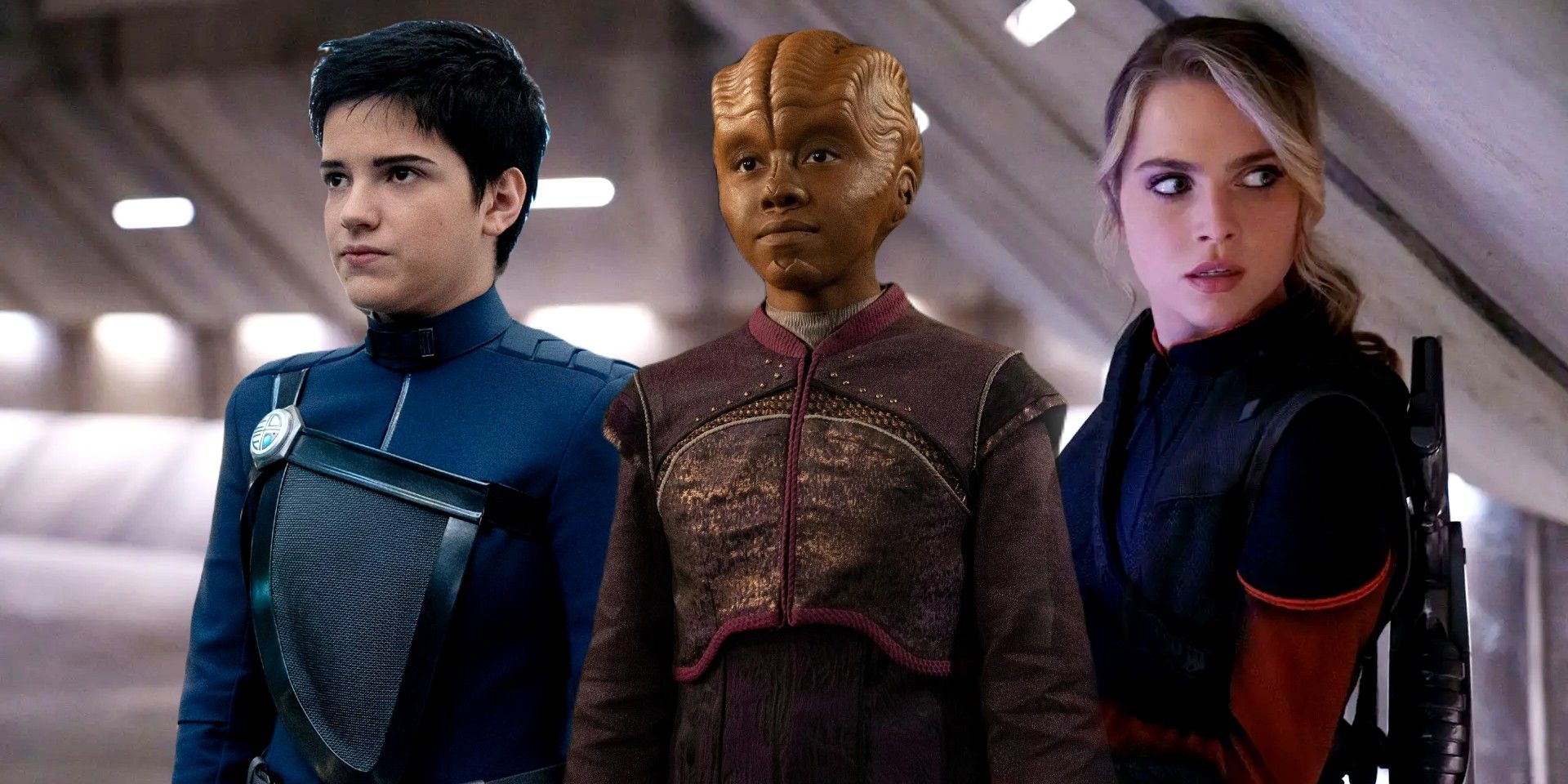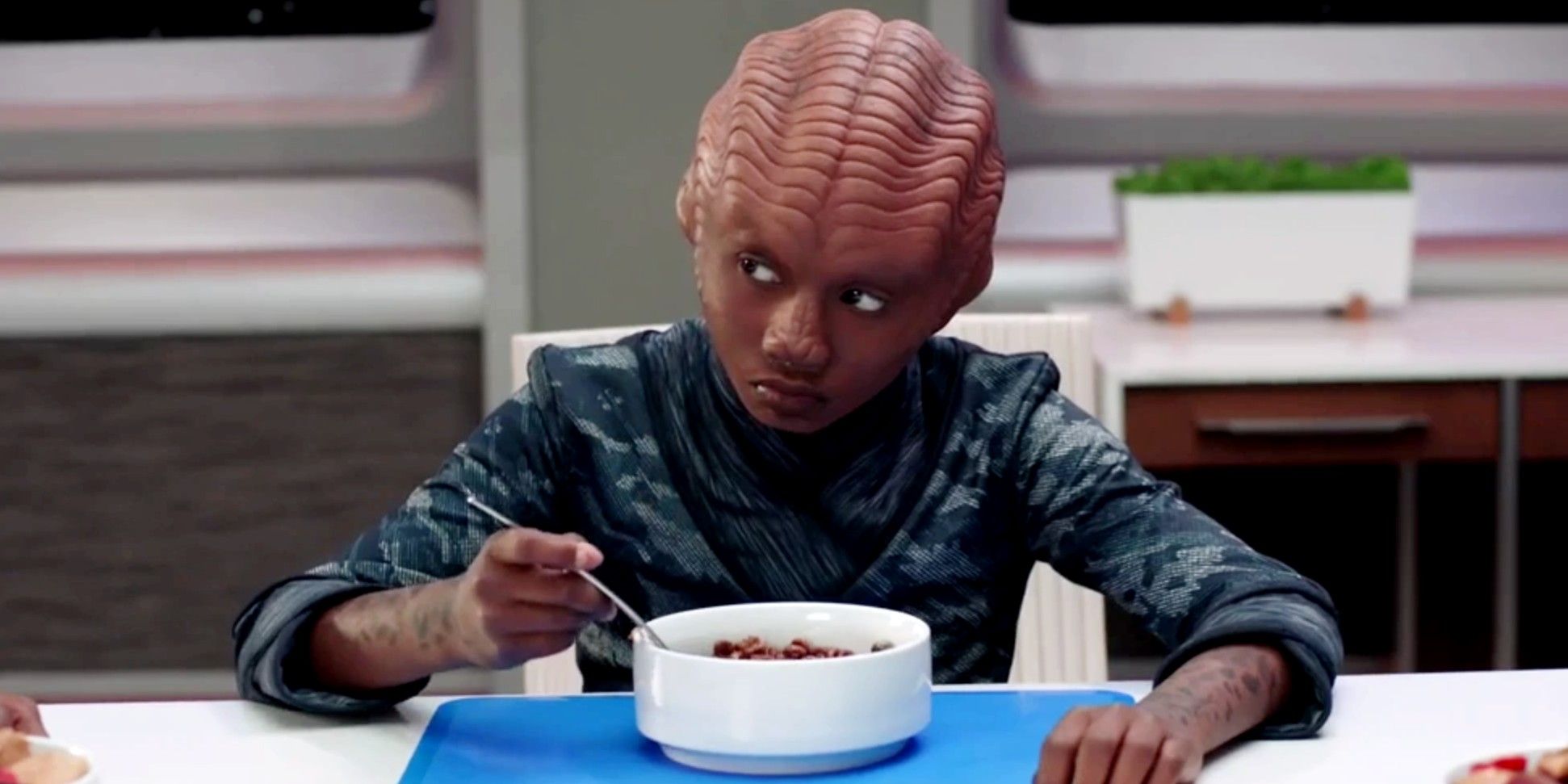Stars Penny Johnson Jerald and Mark Jackson praise The Orville for its LGBTQ+ representation and cite Star Trek as a leading example in the science-fiction genre. The Orville is a science-fiction comedy series that follows the crew of its titular vessel as they explore the mysteries of the universe 400 years in the future. The series originally aired its first two seasons on Fox before it moved to Hulu for season 3, The Orville: New Horizons. In addition to Jerald and Jackson, The Orville stars an ensemble cast that includes Adrianne Palicki, Scott Grimes, Anne Winters, Peter Macon, Jessica Szohr, and Seth MacFarlane, who also created the series.
In some ways, The Orville serves as MacFarlane's ode to Gene Roddenberry's Star Trek franchise, and the sci-fi comedy series often references its inspiration source in both its storyline and style. One of the elements that The Orville shares with Star Trek is the inclusion of minority representation in its writing and in particular, LGBTQ+ representation. The Orville featured two new LGBTQ+ storylines in New Horizons, one following Bortus' (Macon) daughter Topa's (Imani Pullum) journey to embrace her gender identity in "A Tale of Two Topas" and one involving Charly's (Winters) love for her friend Amanda. Star Trek has also been working towards more LGBTQ+ representation in the franchise's more recent series on Paramount+, such as Star Trek: Discovery, which introduced the franchise's first non-binary character Adira Tal (Blu del Barrio).
In an exclusive interview with Screen Rant, Jerald and Jackson praised the growth of LGBTQ+ representation in science fiction television. They discussed how meaningful representation can be for any minority group and how both The Orville and Star Trek use their platforms to present LGBTQ+ stories. Check out Jerald and Jackson's discussion below:
Jerald: Mark, I don't know if you will agree with this, but that particular episode, 10, after going out and supporting the LGBTQ+ community and meeting those fabulous people, I wanted to go and just watch the show again, because it meant so much more to me after that. Charly being, as you say, queer or, what's the appropriate identification, lesbian was what she was or?
Jackson: I'm using queer as an umbrella term here, but yes, effectively, she could be lesbian.
Jerald: But it definitely effected a whole community of people who don't feel like their voice is heard and that's one incredible thing about The Orville, a lot of voices are being heard finally. Even with Claire, the single parent voice is being heard, the older woman's voice is being heard. With our Topa story, the LGBTQ+ community is being heard. The different aliens, the different nations in the universe, that's like all the countries in the world on Earth right now are being heard, because everyone has a voice and everyone should be heard. That, I have to say, is the beauty and the genius behind The Orville. I think it's a responsibility if you have a platform that, without pushing it or beating people over the head, I think it's our responsibility to present it. It's definitely not your job to answer the questions or to judge people in any way, but the presentation is very important and to be a part of that platform that's just so timely, especially for me right now. Politically, we can't shy away from what's really happening and what's effecting people, because after all, people only watch television to either go into some world so they can just have some peace, because everything is just too chaotic for them, or they want to watch something so that they can get an understanding and get closer to this wonderful thing called real humanity. I'm really proud to be part of that, to be talent, to lend myself in any way. But what I refuse to do is to make fun of any group of people and I just want to be real and honest, so I'm really blessed to be part of The Orville.
Jackson: I disagree with all of that. [Chuckles] No, of course, I agree with everything, it all makes sense. Penny and I were lucky enough to be in New York a couple of weeks ago working with Gays in Space, a nonprofit organization who promote queer representation in science-fiction and in the world, of science, like at NASA and stuff, it's so cool, it's very underrepresented in the world of science. Science fiction is getting better, Star Trek had been doing it and we owe a lot to Star Trek, but also some respect to them as well, because they have been waving the queer flag this year, or these last few seasons of Discovery, I haven't watched the other ones yet, so I'm not sure. But yeah, it's a great responsibility to, if you can create worlds out of nothing, create worlds that are going to be helpful to us going forward that we can learn from and we can aspire to be like, I think that's really important. But also, as Penny said, not clubbing people around the head with it. I think Seth is a genius in this respect and The Orville really works in the sense that you've got to create stories with enough room within the storylines for people to make up their own minds. For them not to feel like they're being preached or dictated to.
It is widely acknowledged that Star Trek has been at the forefront of diverse representation since Star Trek: TOS first aired in the 1960s, yet for the majority of the franchise's history, that representation has not included the LGBTQ+ community. It was only in 2017 when Discovery introduced the franchise's first openly gay couple. Sulu was portrayed briefly with a husband in Star Trek Beyond, although George Takei publicly refuted the character change, so the addition of more LGBTQ+ voices is truly a positive direction for the franchise. It is only fitting then that The Orville would follow in the spirit of Star Trek and also push forward with LGBTQ+ representation.
Still, despite Jerald and Jackson's praise, The Orville still can improve how the show handles its LGBTQ+ characters. New Horizons sacrificed Charly in its penultimate episode, falling into a trope often criticized by the lesbian community. That being said, Charly's inclusion in The Orville also shouldn't be overlooked just because it was relatively brief, as she was a complex and developed character. It would be interesting to see MacFarlane and his writing team continue to explore more underrepresented stories if the series is renewed for The Orville season 4.


